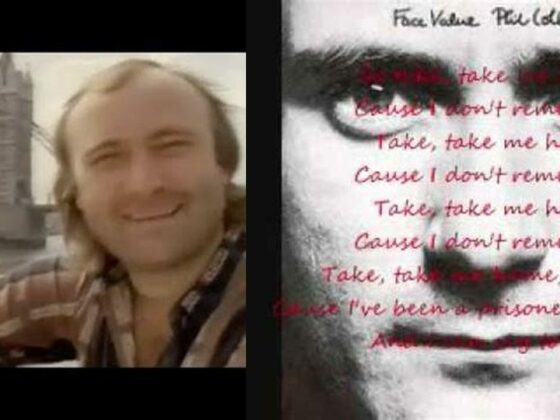Ol Man River – Dive into the soul-stirring depths of music history with our exploration of “Ol’ Man River,” the timeless anthem that resonates with the struggles and resilience of generations. Uncover the echoes of hardship, the symbol of racial injustice, and the enduring power that has made this song a cultural touchstone. Get ready to be swept away by the legacy and inspiration of “Ol’ Man River” as we unravel its profound impact in this captivating journey through music’s most enduring melodies.
Ol’ Man River: A Timeless Anthem of Struggle and Resilience
In the annals of American music, few songs have resonated as profoundly as “Ol’ Man River,” a poignant ballad that captures the essence of the African American experience during a time of profound racial inequality. Written by Jerome Kern and Oscar Hammerstein II, this timeless classic first graced the stage in 1927 as part of the iconic musical “Show Boat.”
Echoes of Hardship: The Song’s Historical Context
The Mississippi River, a mighty waterway that snakes its way through the heart of America, serves as the backdrop for “Ol’ Man River.” During the late 19th and early 20th centuries, African American laborers toiled tirelessly along its banks, enduring unimaginable hardships as they built levees, cleared land, and worked on steamboats. The song, with its haunting melody and evocative lyrics, gives voice to the struggles and aspirations of these unsung heroes.
A Symbol of Racial Injustice: The Song’s Impact
“Ol’ Man River” transcended its humble beginnings as a show tune, evolving into a powerful symbol of the fight for racial equality. Its lyrics, laden with sorrow and resilience, struck a chord with African Americans across the nation, who recognized in them a reflection of their own experiences. The song became an anthem of the Civil Rights Movement, a clarion call for justice and an end to the systemic oppression that plagued the African American community.
“He don’t say nothin’, but he keeps rollin’ along”
This line, repeated throughout the song, encapsulates the resilience of the African American spirit. Despite facing unimaginable adversity, they continued to persevere, their indomitable spirit unbroken. The Mississippi River, a force of nature that relentlessly flows forward, becomes a metaphor for the unyielding determination of the African American people.
“He just keeps rollin’ along”
The song’s simple yet poignant lyrics paint a vivid picture of the backbreaking labor endured by African American workers. The relentless rhythm of the music mimics the toil and drudgery of their daily lives, while the repetition of the phrase “he just keeps rollin’ along” emphasizes their unwavering endurance.
A Legacy of Inspiration: The Song’s Cultural Significance
“Ol’ Man River” has left an indelible mark on American culture, transcending its theatrical origins to become a staple of the Great American Songbook. It has been covered by countless artists, from opera singers to jazz legends, each bringing their unique interpretation to the song while preserving its core message of struggle and resilience.
The song has also found a home in the silver screen, appearing in several notable films, including “Gone with the Wind” and “Apocalypse Now.” Its inclusion in these cinematic masterpieces further cemented its status as a cultural icon, reaching a vast and diverse audience.
A Song for the Ages: The Enduring Power of “Ol’ Man River”
“Ol’ Man River” continues to resonate with audiences today, its message of resilience and the fight for equality still relevant in the 21st century. The song’s ability to transcend time and connect with people from all walks of life is a testament to its enduring power and the enduring legacy of the African American experience.
As we reflect on the song’s historical significance and its lasting impact on American culture, we are reminded of the ongoing struggle for racial justice. “Ol’ Man River” serves as a poignant reminder of the sacrifices made by those who came before us and the work that still needs to be done to create a truly just and equitable society.
Questions & FAQ about Ol Man River
1. What is the significance of “Ol’ Man River” in American culture?
The song has left an indelible mark on American culture, transcending its theatrical origins to become a staple of the Great American Songbook.
2. How has “Ol’ Man River” resonated with audiences over time?
The song continues to resonate with audiences today, its message of resilience and the fight for equality still relevant in the 21st century.
3. What is the backdrop for “Ol’ Man River” and why is it significant?
The Mississippi River serves as the backdrop for the song, giving voice to the struggles and aspirations of African American laborers who toiled along its banks during the late 19th and early 20th centuries.
4. Who wrote “Ol’ Man River” and in which musical did it first appear?
The song was written by Jerome Kern and Oscar Hammerstein II, and it first appeared in the iconic musical “Show Boat” in 1927.
5. How has “Ol’ Man River” been interpreted by different artists?
The song has been covered by countless artists, from opera singers to jazz legends, each bringing their unique interpretation to the song while preserving its core message of struggle and resilience.
6. Why is “Ol’ Man River” considered a timeless anthem?
The song’s ability to transcend time and connect with people from all walks of life is a testament to its enduring power and the enduring legacy of the African American experience.


